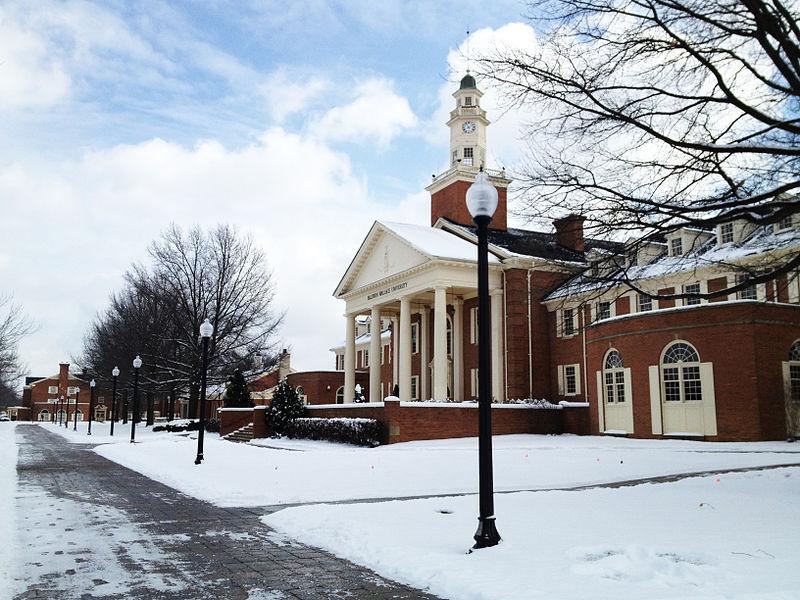Fair use Wikimedia Commons: Pwojdacz
Baldwin Wallace University’s Strosacker Hall (college union) south Campus
Baldwin Wallace University reviews policies after same-sex marriage legalized
October 29, 2015
On June 26, 2015, the US Supreme Court reached a decision regarding the long-debated issue of same-sex marriage: in accordance with the 14th amendment, gay marriage became legal in all 50 states. Now, three months later, the logistics of this decision have entered the playing field: will the benefits offered to same-sex partners in lieu of this law still apply now that these couples can legally marry?
Local institution Baldwin Wallace University (BW) in Berea, which has a precedent of offering health care options to both heterosexual and homosexual domestic partners, contemplates this dilemma. Now that same-sex couples can legally marry, the President of BW and his cabinet are considering whether this policy is still necessary to preserve the spirit of equality that lays in the foundation of the school.
“We wanted to acknowledge all of our employees’ families in the same way, and so the way that we acknowledge families of our heterosexual employees should be the same way that we acknowledge the families of our homosexual employees,” said CJ Harkness, Head of Diversity Affairs at Baldwin Wallace. “That [spirit] is not changing, [but] anytime you have landmark shifts in diversity and inclusion, the questions come up about whether or not the fixes that were created in lieu of what the law was are necessary anymore.”
Harkness, who has worked at BW for almost four years, is a member of the University President’s Cabinet. While he is waiting for the culmination of more data through the Human Resources Department before he takes a firm stance on this issue, he stated that he will support whatever makes the most sense for BW and upholds equality across campus.
“I am blessed to work with other institutional leaders who have the same commitment to inclusion on our campus,” Harkness said. “We try to do the best that we can do [to represent these minorities], regardless [of whether] we’re talking about health care benefits or things that are dealing with gender in our community, or race, or nationality or all kinds of other things.
While private institutions such as BW have the ability to make their own individual policy decisions, the city of Cleveland has passed its own policies in regard to this change in availability of marriage licenses.
Previously, Cleveland offered family benefits for unmarried couples in hopes to provide aid such as health care to same-sex couples who, at the time, were not legally allowed to be married in the state of Ohio.
Sharon Dumas, Cleveland’s finance director, revealed that of the city employees currently utilizing these domestic partner benefits, half of them were heterosexual.
“Now that same-sex couples can marry, those who are city employees will be expected to do so if they wish to continue on the city’s family benefits plan,” said Dumas in an interview with Cleveland.com.
While Baldwin Wallace has yet to reach a decision about their life-partner benefits, Harkness furthered that the university continues to work hard in order to heighten its inclusion. In addition to a new three-tiered mandatory staff training program on the topic of diversity and inclusion, BW features a campus diversity dialogue series where students can voice their opinions, an academic and cultural event series and a diversity requirement for all students. When one feels as though he or she is being discriminated against, a transparent resolution process involving thorough investigation is enacted to solve the conflict.
“[Inclusion is] built into the fabric of what we are trying to do at BW,” Harkness said. “We are certainly not a perfect community and certainly have a long way to go, but I believe [we] have the infrastructure and the institutional will to continue to work hard at this.”
